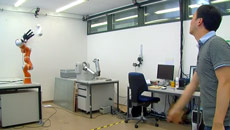“Be positive” is not merely a motivational punch line. People with high levels of cynical distrust are more likely to develop dementia and other health problems, a new study reveals.
Cynical distrust, which is defined as the belief that others are mainly motivated by selfish concerns, has been associated with other health problems, such as heart disease.
"These results add to the evidence that people's view on life and personality may have an impact on their health," said study author Anna-Maija Tolppanen from University of Eastern Finland in Kuopio.
"Understanding how a personality trait like cynicism affects risk for dementia might provide us with important insights on how to reduce risks for dementia."
For the study, 1,449 people with an average age of 71 were given tests for dementia and a questionnaire to measure their level of cynicism.
Based on their scores, participants were grouped in low, moderate and high levels of cynical distrust.
A total of 622 people completed two tests for dementia, with the last one an average of eight years after the study started.
During that time, 46 people were diagnosed with dementia.
Once researchers adjusted for other factors that could affect dementia risk, such as high blood pressure, high cholesterol and smoking, people with high levels of cynical distrust were three times more likely to develop dementia than people with low levels of cynicism.
Of the 164 people with high levels of cynicism, 14 people developed dementia, compared to nine of the 212 people with low levels of cynicism.
The study also looked at whether people with high levels of cynicism were more likely to die sooner than people with low levels of cynicism. But it found no link between cynicism and earlier death.
The study was published the online in the journal Neurology.





